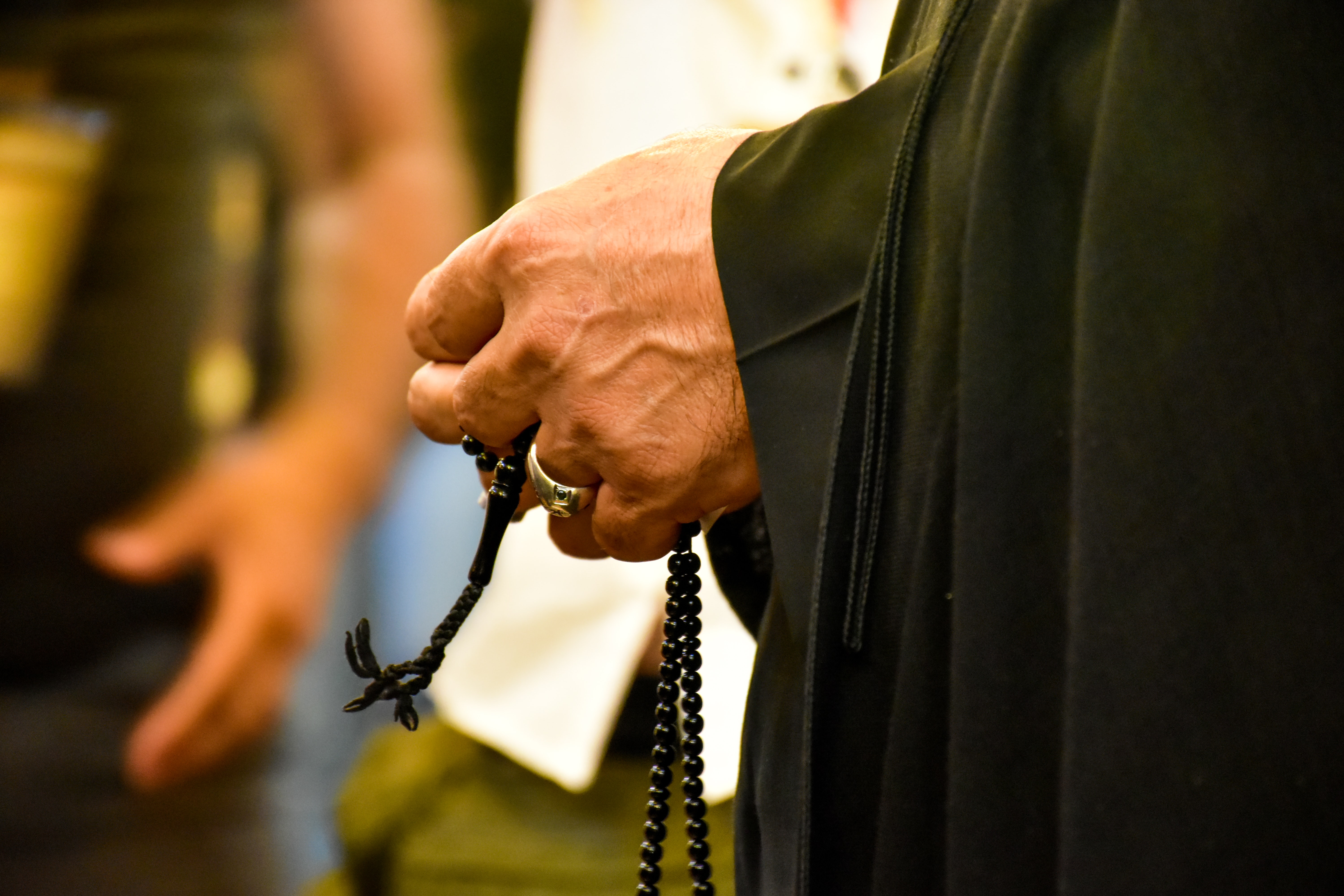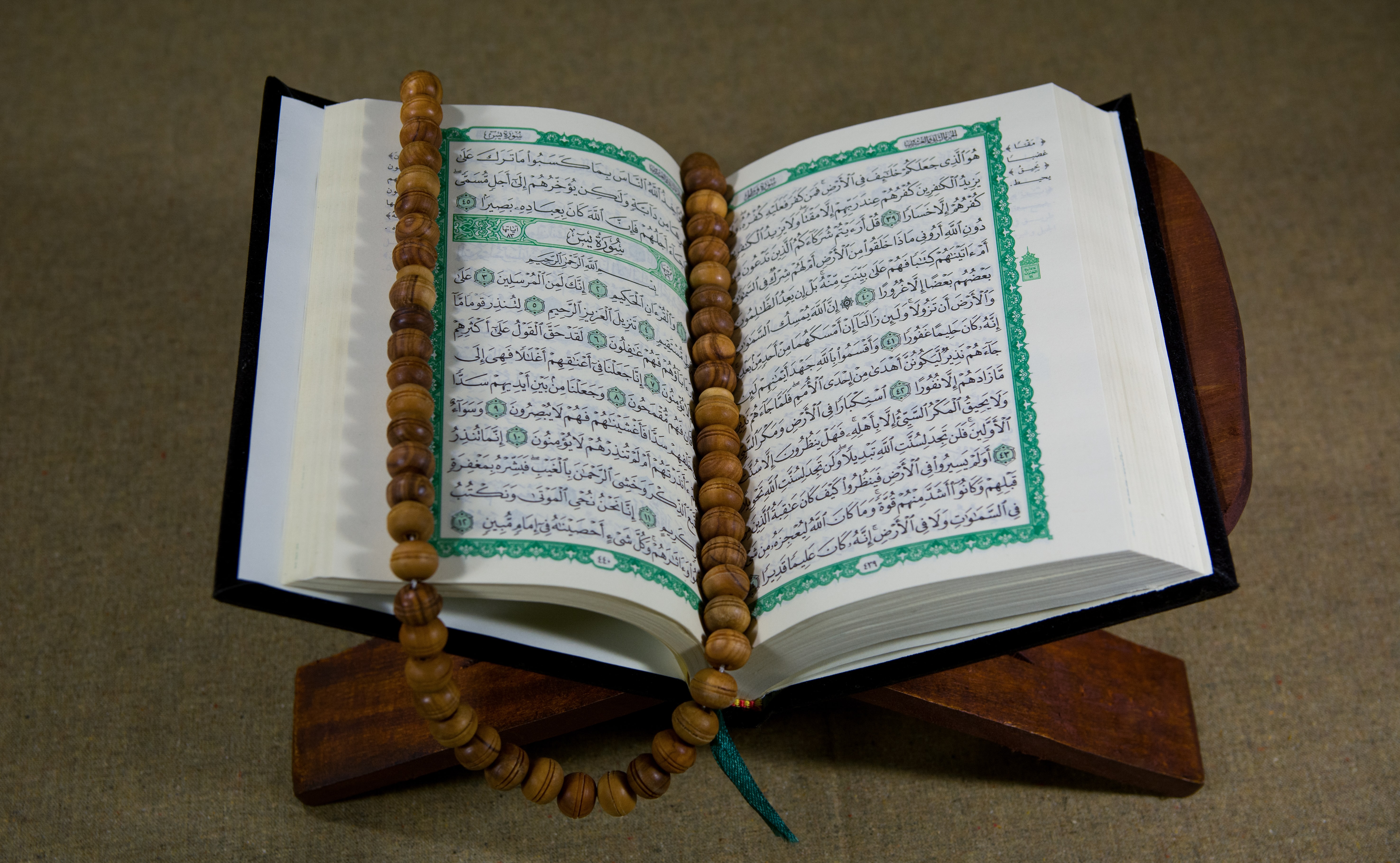Meaning of Reconciliation in Various Fields and Principles to Implement It
Here is the general meaning of reconciliation and in the field of accounting along with the principles used in conducting reconciliation.

Kapanlagi.com - The word rasul, according to language, has an interesting meaning to understand. Moreover, as Muslims, you are obliged to believe in prophets and messengers. So it is reasonable if you also study everything related to prophets and messengers.
First, you need to know that the word rasul, according to language, means messenger. Messenger means a person who is given the task of conveying something or being a mediator. In religion, messengers have the duty of being a mediator between the people and God.
Now, to understand the explanation about the meaning of rasul, according to language, as a messenger more deeply, you can refer to the following information. There is also an explanation about their respective duties and the differences between prophets and messengers.

Messenger's word (Credit: Unsplash)
According to the language, the word 'Rasul' means messenger. This term originated from the Arabic language. Meanwhile, according to the Indonesian Dictionary, the meaning of Rasul is a person who receives revelation from Allah SWT to be conveyed to humans.
In Islamic teachings, the term Rasul is understood as a title for prophets who are obligated to convey revelations. This means that Rasul has a greater responsibility than other prophets. On the other hand, in Christian teachings, apostle refers to the disciples of Jesus, especially the twelve apostles.
In Indonesia, the term Rasul is used as an equivalent of 'apostolos' in Greek. The meaning is similar, which is 'I send' or 'I dispatch' and 'messenger' or 'envoy'. However, the true meaning of 'apostolos' is more than just a messenger, but it can be considered as a delegate.
Furthermore, in modern times, there are Pentecostal missionary movements that often refer to themselves as apostles.

Definition of Prophet (Credit: Unsplash)
As you already know, the word 'messenger' in the language means envoy. Meanwhile, a prophet is someone who receives revelation from Allah. If that person is assigned the task of spreading the revelation, then they also become a messenger.
A prophet and a messenger are individuals who must be trusted by the Islamic community. This is stated in the fourth pillar of faith. As known, Prophet Muhammad (PBUH) is a messenger who was tasked with spreading the teachings of Islam. Before him, messengers were sent by Allah to convey revelations to each community.
As the last prophet, Muhammad is the perfecter of the teachings that were previously brought by earlier messengers.

Prophet and Messenger Task (Credit: Unsplash)
Understanding the word 'messenger' in the language as meaning envoy or delegate is not enough. As messengers, they have duties that must be carried out. Here are some of the duties of prophets and messengers that you can learn:
1. Duties of messengers
- Inviting creatures to worship only Allah.
- Conveying the commands and prohibitions of Allah to the community.
- Guiding humans to the right path.
- Being a good example or role model.
- Warning humans about the Day of Judgment.
- Redirecting human attention to focus more on the afterlife.
- Providing reasons for not disputing with Allah among humans.
2. Duties of prophets
- Calling for faith in Allah and His oneness.
- Calling for faith in the Day of Judgment and the Day of Recompense.
- Explaining the divine law for the benefit and happiness of humans in this world and the hereafter.

Difference Between Prophet and Messenger (Credit: Unsplash)
After understanding the meaning of the word 'rasul' in the language, which means messenger along with an explanation about the prophet, you may be curious about the difference between the two. Well, to answer that curiosity, please read the explanation about their differences in the following information.
- A prophet receives revelation without being obligated to spread it, while a messenger is obliged to convey the revelation to his people.
- A messenger is definitely a prophet, but a prophet is not necessarily a messenger.
- Messengers are sent with new laws or decrees, while prophets only follow the laws and rules from previous messengers.
- The level of messengership is higher than the level of prophethood.

Number of Prophets and Messengers (Credit: Unsplash)
Considering the numerous tasks of the messengers and the long period of their preaching, it is natural for you to be curious about their number. Unfortunately, the exact number of Prophets and Messengers is unknown. However, there is a mention in the Quran in Surah Fatir, verse 42, that the number of Prophets and Messengers is very large.
"Inna arsalnaka bil-aqqi basyiraw wa nazira, wa im min ummatin illa khala fiha nazir,"
Meaning: Indeed, We have sent you with the truth as a bringer of good tidings and a warner. And there is no nation but that there has passed within it a warner.
Nevertheless, there are several opinions from scholars regarding the number of prophets, which is 124,000 individuals, and the number of messengers is 313 individuals. Meanwhile, the number of messengers that Muslims must believe in is 25 individuals. Their stories are spread throughout the Quran and can be taken as examples.
As mentioned earlier, the term 'rasul' means a chosen human being who receives Allah SWT and is assigned to convey His message. It has also been explained that in the Islamic religion, there are 25 prophets and messengers that must be believed in. Here is a list of the 25 names of Prophets and Messengers that every Muslim must know.
1. Adam AS
2. Idris AS
3. Nuh AS
4. Hud AS
5. Saleh AS
6. Ibrahim AS
7. Luth AS
8. Ismail AS
9. Ishak AS
10. Yaqub AS
11. Yusuf AS
12. Ayub AS
13. Syuaib AS
14. Musa AS
15. Harun AS
16. Zulkifli AS
17. Daud AS
18. Sulaiman AS
19. Ilyas AS
20. Ilyasa AS
21. Yunus AS
22. Zakaria AS
23. Yahya AS
24. Isa AS
25. Muhammad SAW

Prophet with the Title Ulul Azmi (Credit: Unsplash)
Prophet and Messenger mean a messenger of Allah SWT. Every Prophet and Messenger has their own life story. In spreading the religion of Islam, they also faced different challenges and trials. Among the 25 names of Prophets and Messengers that must be believed by Muslims, there are 5 of them who are titled ulul azmi.
The meaning of ulul azmi is a term for the Prophets and Messengers, which means a messenger of Allah SWT. From the life stories of the ulul azmi Prophets, a Muslim can learn about perseverance and steadfastness. The five Prophets and Messengers who are titled ulul azmi are Prophet Nuh AS, Prophet Ibrahim AS, Prophet Musa AS, Prophet Isa AS, Prophet Muhammad SAW.
Prophet and Messenger mean someone who is tasked with conveying revelations from Allah SWT to their people. Therefore, a messenger must have steadfastness to maintain their faith and piety towards Allah SWT. In addition, every Messenger chosen directly by Allah SWT must also have four mandatory characteristics. Here is an explanation of the mandatory characteristics for Messengers.
1. Shidiq, which means truthful or honest. It is impossible for a Messenger to have the characteristic of Kadzib or liking to lie.
2. Amanah, which means trustworthy. It is impossible for a Messenger to be treacherous.
3. Tabligh, which means conveying. It is impossible for a Messenger to have the characteristic of kitman or hiding his teachings.
4. Fathonah, which means intelligent. It is impossible for a Messenger to have the characteristic of forgetfulness.

Impossible Traits for Prophets (Credit: Unsplash)
In addition to the obligatory characteristics, there are also impossible characteristics for a Messenger. As the name suggests, every Messenger sent by Allah SWT is certainly free from these bad qualities. There are 4 impossible characteristics for a Messenger. Here is the explanation.
1. Kidzib means lying or falsehood. A Messenger of Allah SWT will never engage in lying. On the contrary, a Messenger must convey the truth.
2. Khianat means contradiction or breaking a promise. A Messenger cannot possibly betray, especially the commands of Allah SWT.
3. Kitman means hiding secrets. A Messenger is assigned to convey the revelations of Allah SWT to his people. Therefore, regarding these revelations, a Messenger cannot keep them secret.
4. Baladah means being foolish. This is contrary to the obligatory characteristic of fathonah. Although when chosen by Allah, the Messenger was someone who could not read and write, but the Prophet still had the ability to remember and convey the revelations.
KLovers, that is the explanation of the word 'rasul' in the language, which means messenger, along with its differences from prophet.
(kpl/gen/ans)
Cobain For You Page (FYP) Yang kamu suka ada di sini,
lihat isinya
Here is the general meaning of reconciliation and in the field of accounting along with the principles used in conducting reconciliation.
Indonesia has a variety of food menus that are worth introducing. The taste is diverse, ranging from sweet, savory, to a combination of both. If you need further information about traditional snack recommendations, just take a look at the following.
The literal meaning of Ulul Azmi is "having firmness of heart". Allah has given this title to five prophets and messengers, namely Prophet Muhammad, Prophet Noah, Prophet Abraham, Prophet Moses, and Prophet Jesus.
As Muslims, of course, you want to know the meaning of Al Ikhlas as a surah that has many virtues. Therefore, here is information about the meaning and virtues that you can practice in your daily life.
If you are interested in learning about the concept of brotherhood in Islam, please read the following information about the meaning of ukhuwah. By understanding it, you will be able to better position yourself in relationships with fellow humans in everyday life.
Knowing the meaning of assimilation is certainly important to be aware of. Moreover, the term assimilation is closely related to social life in society. Here's the explanation KLovers.
Popular game recommendations for girls are very diverse. Especially the number of game downloads for girls is quite high with high ratings. Here is a list of popular games for girls.
Although it is okay to use non-standard words in daily conversations, it is better to choose standard words when in formal situations. Therefore, to understand the rules and regulations in Indonesian language, please read the following information.
Among the many slang vocabularies, kane is one that often appears on social media such as TikTok or Instagram. So, what is the actual meaning of kane?
What are the recommendations for Western foreign films with various genres? Here is a list of recommended foreign films that you shouldn't miss. Let's check it out, KLovers.
Serial killings, detective stories, and mysterious disasters are often the themes that appear in this genre. Well, if you're curious and can't wait to watch them, let's just take a look at the following recommended Korean thriller films.
Surah An Nasr is the 110th chapter in the Quran and the meaning of Surah An Nasr is "victory". For KLovers who want to know the meaning of Surah An Nasr and its significance, here is the meaning of Surah An Nasr along with its understanding and virtue.